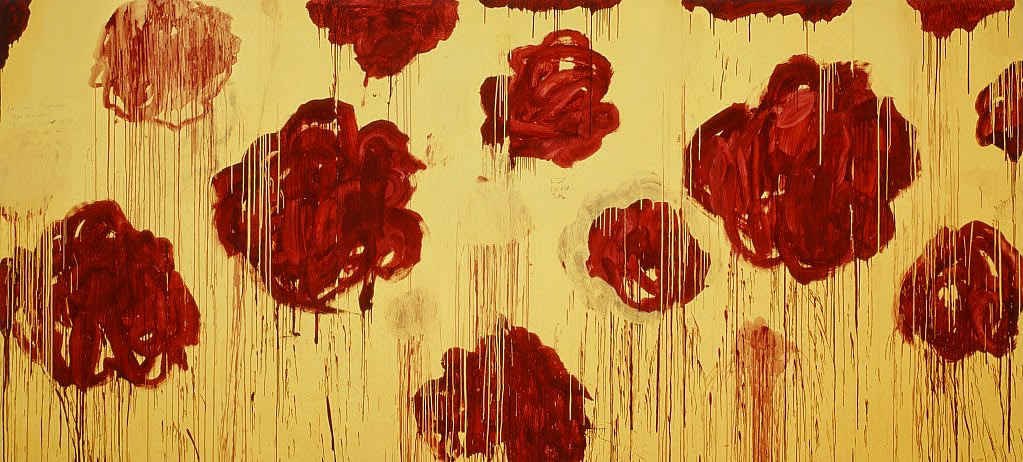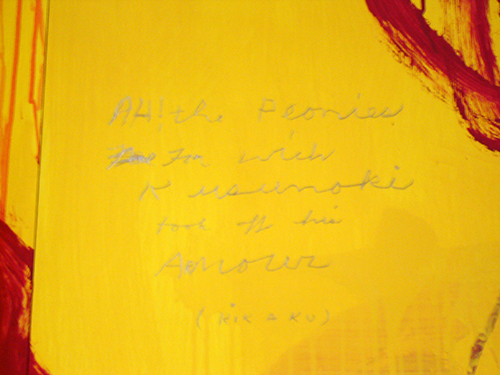
In the haiku on the farthest right, the warrior relaxes and takes off his armor, capitulating to pleasure and emotion:
AH! The Peonies
For which
Kusonoki
Took off his Armour
The haiku poet’s name, Kikaku, means “easy-going.” Ironically, Takarai Kikaku (1661-1707), the disciple of the seventeenth-century master of haiku, Matsuo Basho (1644-94), famously dissented from Basho’s philosophy of karumi or “lightness.” Kikaku’s haiku recalls the legendary occasion when the young fourteenth-century samurai warrior Kusunoki Masashige lowered his guard when faced with the beauty of peony blossoms, just before the momentous battle in which he died.
Mary Jacobus. Reading Cy Twombly: Poetry in Paint. Princeton, 2016.
Also via the Art Institute of Chicago:
In Twombly’s inscription, the initial r in the word armour is smaller than the other letters and was thus likely inserted by the artist as a revision or made to appear as an intentional afterthought. This perhaps intentional pun on the terms amour/armour further conflates the themes of love and violence that shape Kusunoki’s story.

